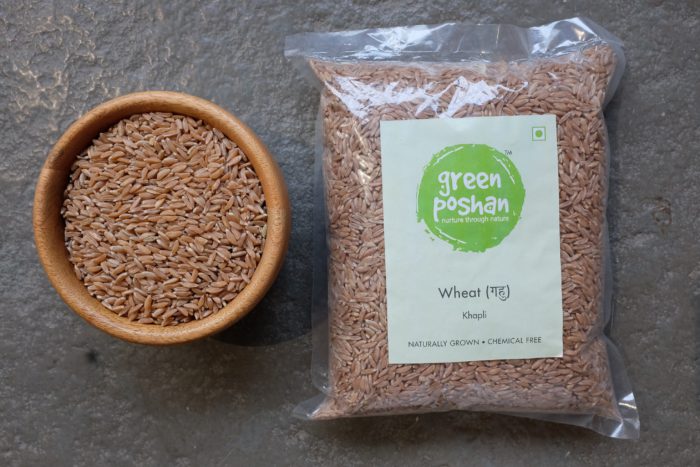Have you ever wondered why you feel bloated, uneasy, or sluggish after what seems like a normal meal?
The answer may lie in everyday foods causing digestive problems and culprits hidden in plain sight on the Indian plate and grocery list.
While stress and lifestyle play a role, research shows the root cause for most Indian families is the regular intake of foods causing digestive problems, processed snacks, adulterated staples, and low-fiber choices.
The good news? You can restore gut wellness with simple, informed changes and the right pantry swaps.
Why Digestive Problems Are So Common in Indian Homes
Indians today face a rising tide of digestive issues from bloating and acidity to constipation, stomach pain, or irregularity.
Recent health surveys link these problems primarily to:
- Excessively refined grains (maida, white bread, bakery sweets)
- Artificially flavored and colored snacks
- Chemically adulterated pulses, spices, and oils
- Lack of whole grains, fiber, and clean, natural foods
With more packaged foods, quick-fix snacks, and hybrid wheat varieties, many Indian stomachs struggle to handle the overload, especially when digestion-boosting traditional habits are neglected.
Common Foods Causing Digestive Problems in Indian Diets
1. Processed & Packaged Foods
Biscuits, chips, fried snacks, namkeen, and instant noodles are loaded with preservatives, artificial flavors, excess salt, and unhealthy fats.
These “empty calorie” items disrupt gut bacteria, slow down bowel movements, and leave you feeling heavy or constipated.
2. Refined Flour & White Grains
White bread, bakery items, maida rotis, and commercially milled rice are stripped of fiber and nutrients, causing erratic digestion, constipation, and energy crashes.
3. Adulterated Oils and Fats
Heavily processed oils or those mixed with mineral oils and chemical adulterants (common with loose or cheap products) can impair liver and pancreatic function vital for proper digestion.
4. Dairy (When Adulterated or for the Lactose Intolerant)
Milk with added detergents, starch, or synthetic whitening agents is sadly not uncommon.
For many, dairy that isn’t pure or properly processed becomes harsh on the gut, causing cramping, gas, or loose stools.
5. Pulses/Legumes Not Properly Soaked
Rajma, chole, or black chana, if not soaked overnight or well-cooked, retain complex sugars and polyphenols that ferment in the gut
resulting in gas, discomfort, and even IBS-like symptoms.
6. High Sugar & Artificial Sweeteners
Beverages, sweets, and packaged foods high in refined sugar and sugar substitutes disrupt healthy gut flora, trigger bloating, and aggravate indigestion.
The Science: Why These Foods Cause Digestive Issues
Studies point to several mechanisms:
- Low Fiber: Gut bacteria need fiber for health. Refined foods starve bacteria, slowing transit and causing constipation.
- Chemical Residues: Pesticides or synthetic adulterants in staples irritate the gut lining, reduce nutrient absorption, and promote inflammation.
- Dysbiosis: Additives and preserva tives in processed food promote “bad” bacteria, leading to chronic bloat, gas, and weakened immunity.
- Food Intolerances: Modern wheat, adulterated milk, and fused oils increase risk of intolerances causing unpredictable digestion.
Foods Causing Digestive Problems: What to Avoid and How to Eat Better
Avoid:
- Deep-fried snacks, commercial bakery products
- Maida-based rotis/pastas
- Loose, unpackaged oils/pulses/spices
- Packaged sugary drinks and sweets
- Unsoaked or undercooked legumes
Switch To:
- Whole grains: millets (ragi, bajra, jowar), brown/red rice, Khapli wheat
- Cold-pressed, batch-tested oils: groundnut, mustard, sesame, coconut
- Clean, soaked, and naturally processed dals and pulses
- Natural sweeteners: desi jaggery, raw honey (batch-tested)
- Pure spices, lab-tested for heavy metals and colorants
Khapli Wheat — 1kg
NOTE:- For retail customer orders, weight and volume restrictions apply. If you’d like to place an order exceeding these limits, please reach out to the GreenPoshan customer care team — we’re happy to assist you!
Barnyards Millet — 250g
Barnyard millet, also known as Sanwa or Shyama, is a tiny, nutrient-rich grain cherished for its high fiber content and quick-cooking nature. Traditionally consumed during fasting periods in India, it has now made its way into regular diets owing to its impressive health benefits and versatility. With Green Poshan’s 250g Barnyard Millets, you receive naturally harvested, minimally processed grains packed with wholesome goodness.
Easy to cook and mild in flavor, barnyard millets are a fantastic alternative to rice and wheat. Whether used in upma, pulao, porridge, or even dosa and khichdi, they adapt effortlessly to both savory and mildly sweet dishes. If you’re looking for a grain that supports balanced nutrition and fits well into everyday meals, barnyard millet is a wise choice.
Out of stock
How GreenPoshan Helps Prevent Digestive Problems
All GreenPoshan staples grains, pulses, oils, and spices are:
- Third-party lab-tested for chemicals, adulterants, and heavy metals
- Sourced from organic and trusted farmers only
- Stone-ground, minimally processed to preserve key nutrients and fiber
- Free from artificial additives or colorants
These products align with Ayurvedic and modern nutrition principles for optimal gut health and Indian kitchens.
Recognize the Warning Signs Is Your Food Fueling the Problem?
- Frequently bloated after snacking or meals
- Constipation, diarrhea, or irregular bowel movements
- Acidity, heartburn, or gas
- Unexplained fatigue or sluggishness after eating
If you notice these symptoms regularly, your diet may be filled with foods causing digestive problems. Keep a food diary and make note of common triggers.
Frequently Asked Questions
Q: Which foods are most likely to cause digestive problems in India?
A: Refined flour items, processed snacks, adulterated oils, and some dairy products are leading culprits.
Q: Can home-cooked Indian food improve digestion?
A: Absolutely. Cooking with whole grains, ghee or cold-pressed oils, well-soaked pulses, natural spices, and limited packaged foods can significantly boost gut health.
Q: Are artificial sweeteners safe for digestion?
A: For many, artificial sweeteners disrupt gut microflora and trigger bloating or gas.
Q: Is it necessary to buy organic staples for better digestion?
A: Not always “organic,” but always batch-tested and clean. Trust brands that provide transparency and lab testing, such as GreenPoshan.
Q: How soon will I notice differences after switching to cleaner food?
A: Most experiences improved digestion within a week, sometimes even after three days, when making the right swaps.
In the End
Understanding foods causing digestive problems is the first step to a happier, healthier gut. By cutting down processed foods, avoiding chemical-laden or adulterated items, and switching to batch-tested, chemical-free staples from trusted sources like GreenPoshan, you can reclaim digestive comfort naturally and deliciously.



